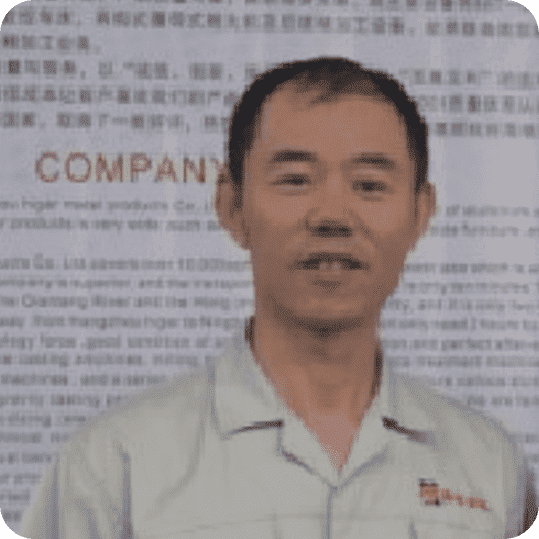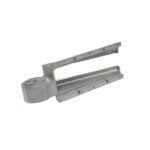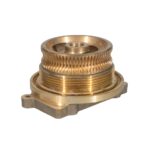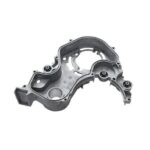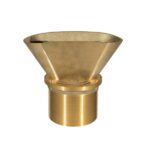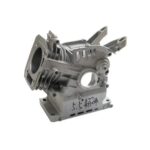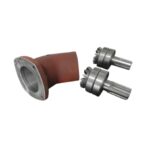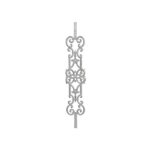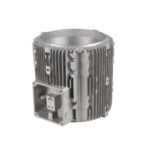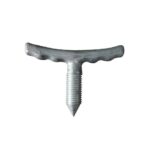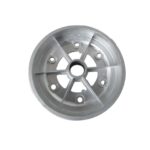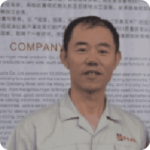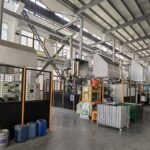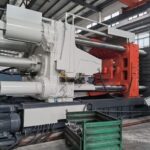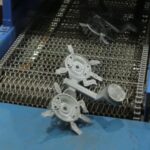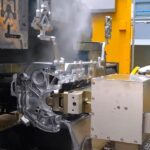Why Aluminum Die Casting Matters for Industrial Buyers
In our 20+ years of manufacturing aluminum die-cast parts, we’ve seen the process become essential across industries like automotive, lighting, medical, and machinery. For buyers, understanding the die casting process isn’t about knowing every technical detail—it’s about ensuring consistent quality, meeting tight tolerances, and getting the right material at the right cost.
Overview of the Aluminum Die Casting Process
Here’s a quick view of the full aluminum die casting workflow we follow in-house. This standard flow helps ensure repeatability and reliability for every order.
| Step | Process Stage | Key Purpose |
| 1 | Melting Aluminum Alloys | Prepare molten aluminum, usually ADC12 or equivalent |
| 2 | Mold Setup and Preheating | Ensure dimensional accuracy and improve metal flow |
| 3 | Injection into Mold | Fill the mold at high pressure for full cavity capture |
| 4 | Solidification and Cooling | Let parts cool while controlling shrinkage |
| 5 | Mold Opening and Part Ejection | Remove parts automatically or manually |
| 6 | Trimming and Deburring | Remove excess material, flash, and sharp edges |
| 7 | Surface Treatment and Cleaning | Shot blasting or polishing for part aesthetics |
| 8 | Final Inspection and Packing | Check tolerances and prepare for shipping |
Step-by-Step Explanation of the Die Casting Process
Now let’s break down each step further so you can understand what’s happening inside our factory.
Mold Preparation
We start by preheating the die mold to approximately 200°C–250°C to avoid thermal shock when the molten aluminum is injected. Our team also applies a special release agent to the die cavity to ensure smooth ejection of the final parts and to prevent buildup on the mold surface, which can affect product quality.
Clamping
We use automated clamping systems to hold both halves of the die securely together during injection. For complex parts, clamping force may reach up to 800–1000 tons to prevent leakage or flash. Proper clamping ensures the mold remains fully sealed under high injection pressure.
Melting Aluminum
At our facility, ADC12 aluminum alloy is melted in a controlled furnace, typically at 660°C–680°C. We monitor the temperature closely to maintain consistent alloy fluidity and avoid gas entrapment or oxidation. Consistent melting practices ensure dimensional stability and mechanical properties in the finished parts.
Injection
Molten aluminum is rapidly injected into the die cavity at pressures reaching up to 1500 bar. We adjust injection speed and pressure depending on wall thickness and part complexity. The goal is to ensure complete mold fill without creating turbulence that can lead to porosity.
Cooling
After injection, the part begins to solidify within seconds. Our mold designs include integrated water or oil cooling channels to accelerate this stage. Cooling time varies by part size but typically lasts 5–15 seconds to allow full solidification and stress relief.
Ejection
Once cooled, ejector pins automatically push the casting from the die. We’ve calibrated our machines to ensure smooth ejection without damaging part surfaces. For delicate geometries, we sometimes use custom ejection sequences or soft-touch solutions.
Trimming
We remove any excess material such as runners or flash using hydraulic trim dies or CNC finishing. This step is critical to ensure part dimensions meet ±0.05 mm tolerances. Any sharp edges are also smoothed out to comply with safety and cosmetic standards.
Surface Treatment
Depending on client requirements, we perform shot blasting, powder coating, or anodizing. Surface treatments help improve corrosion resistance, adhesion, and part appearance. Shot blasting is commonly used for matte texture, while anodizing is suitable for medical or electronic housings.
Inspection & Quality Control
Our QC team inspects parts using digital calipers, CMMs, and X-ray machines. We check for dimensional accuracy, porosity, and surface defects. ADC12 castings typically meet tensile strengths above 300 MPa, and we reject any part outside tolerance or with visible inclusions.
Packaging and Delivery
Final parts are packed in foam-lined trays or export-grade cartons based on destination. We label each shipment with lot number, alloy, and part code. For regular buyers, we also support scheduled batch deliveries to reduce inventory pressure and speed up project timelines.
Key Equipment We Use in the Process
Over the years, we’ve standardized our workflow using reliable high-pressure die casting machines (280T to 800T), CNC trimming stations, hanging shot blasting machines, and 3D dimensional inspection tools. This setup ensures that the production of aluminum die-cast parts remains stable, efficient, and in line with international tolerance standards like ±0.05 mm.
Why Our Process Meets Buyer Expectations
We know buyers care about repeatable quality, on-time delivery, and cost transparency. That’s why our aluminum die casting process emphasizes material selection (ADC12, A380), precision (±0.05 mm), and defect control (less than 1.5% NG rate). With over 20 years of experience, we’ve handled diverse requirements—whether it’s large production runs or low-volume batches.
Final Thoughts and What to Ask Your Supplier
Understanding the aluminum die casting process helps you ask the right questions—what alloys are used, how tolerances are controlled, what post-processing is available. We welcome you to reach out and see if our production capabilities fit your current or upcoming projects. For serious inquiries, email us directly at yongzhucasting@gmail.com
Searching for High-Quality for Cast Aluminum Parts?
You’ve come to the right place! Yongzhu Casting is a certified die casting manufacturer with over 20 years of expertise in the industry.
We have successfully completed numerous die casting projects for Aluminum casting parts, particularly in your industry.

Zhejiang Yongzhu Casting Technology Co., Ltd.
Location: Zhejiang, China
Company type: Manufacturers, Producers, Wholesalers
Year Founded: 2004
Main Products: Aluminium die casting, Mold Making, Die Casting, Sand Casting, Gravity Casting
Leading Chinese producer Yongzhu Casting is formerly known as Hangzhou Higer Metal Products Co., Ltd., was established in 2004.
With 20 years of experience in the industry, we are a specialized manufacturer in Aluminum casting and Machining.
Our products are widely used in various applications such as Automotive, Energy, Lighting, Medical, Home Furnishings, Machinery & Equipment etc. Below are our advantages:
Design Review & DFM Support
Our professionals will evaluate your designs and provide suggestions for cost savings. Additionally, we offer Design for Manufacturing (DFM) assistance and conduct mold flow analyses to facilitate efficient production.
State-of-the-Art Manufacturing Equipment
Our facility is equipped with advanced hot-chamber and cold-chamber die casting machinery for aluminum and zinc production.
We also utilize high-precision CNC machines in a temperature-controlled workshop, featuring 3-Axis, 4-Axis and 5-Axis setups to manage any project you have.
Rigorous Quality Control Measures
Our dedicated quality control team ensures that all parts meet the highest standards of quality and consistency. We employ high-accuracy measurement instruments, including CMM, spectrometers, and X-ray detectors.
Comprehensive Surface Treatment Options
We provide a variety of surface finishing techniques for your precision die casting components. Our in-house services include cleaning, polishing, anodizing, shot blasting, and painting.
Flexible Project Acceptance
While larger manufacturers often shy away from low-volume projects, and smaller ones may struggle with quality, Yongzhu Casting stands apart. We prioritize customer satisfaction and willingly accept high-mix, low-volume projects like yours.

